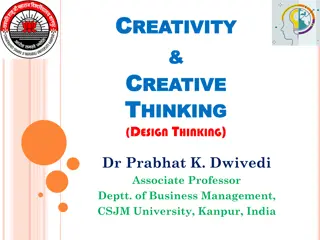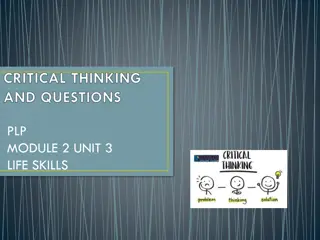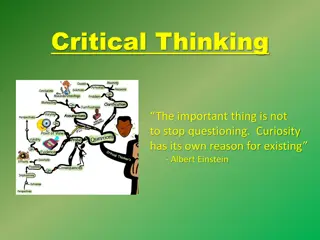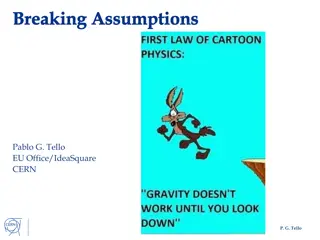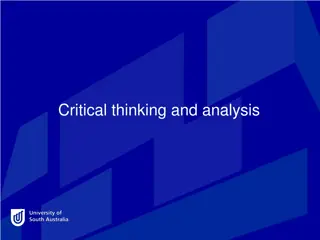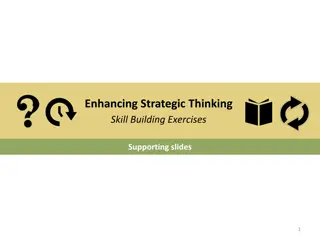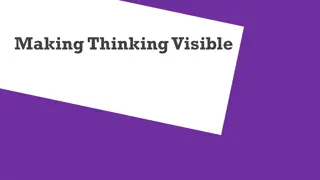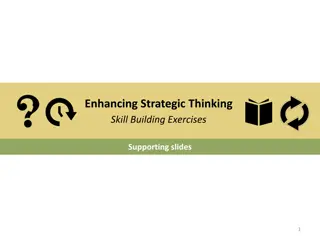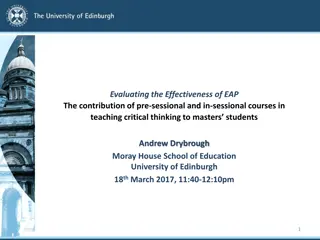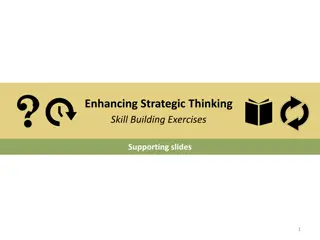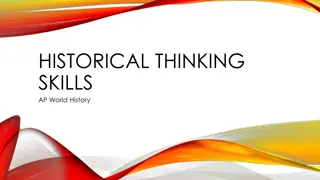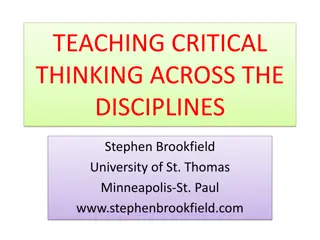Enhancing Historical Thinking Skills
Delve into the intricacies of historical causation, patterns of continuity and change, periodization, comparison, contextualization, crafting historical arguments from evidence, historical interpretation, and synthesis. Uncover relationships between multiple causes and effects, analyze historical developments across societies, construct convincing interpretations, and recognize diverse perspectives on historical phenomena. Develop persuasive arguments and meaningful understandings by synthesizing conflicting evidence and interpreting the past through different contexts and circumstances.
Download Presentation

Please find below an Image/Link to download the presentation.
The content on the website is provided AS IS for your information and personal use only. It may not be sold, licensed, or shared on other websites without obtaining consent from the author.If you encounter any issues during the download, it is possible that the publisher has removed the file from their server.
You are allowed to download the files provided on this website for personal or commercial use, subject to the condition that they are used lawfully. All files are the property of their respective owners.
The content on the website is provided AS IS for your information and personal use only. It may not be sold, licensed, or shared on other websites without obtaining consent from the author.
E N D
Presentation Transcript
identify, analyze, evaluate, recognize, describe, compare, explain, make, construct... Chronological Reasoning 1. Historical Causation: relationships among multiple historical causes and effects, distinguishing between those that are long-term and proximate, and among coincidence, causation and correlation. 2. Patterns of Continuity and Change over Time: the dynamics of historical continuity and change and relate historical patterns to larger historical processes or themes. 3.Periodization: models that historians use to organize history into discrete periods (turning points, dates), while exploring the causes and consequences of the narratives that develop as a result of historians choices about periodization.
identify, analyze, evaluate, recognize, describe, compare, explain, make, construct... Comparison and Contextualization 4) Comparison: historical developments and processes across place, time and different societies or within one society as well as evaluate multiple and differing perspectives on a given historical phenomenon. 5) Contextualization: the connections between historical events and processes to specific circumstances of time and place and to broader regional, national, or global processes.
identify, analyze, evaluate, recognize, describe, compare, explain, make, construct... Crafting Historical Arguments from Historical Evidence 6) Historical Argumentation: evidence used in commonly accepted historical arguments. Construct convincing interpretations through the use of and analysis of historical evidence. Evaluate and synthesize conflicting historical evidence to construct persuasive arguments. 7) Appropriate Use of Relevant Historical Evidence: supportable inferences and draw appropriate conclusions from historical evidence by considering audience, purpose, point of view, format, argument limitations and context.
identify, analyze, evaluate, recognize, describe, compare, explain, make, construct... Historical Interpretation and Synthesis 8) Interpretation: diverse interpretations of the past while recognizing how circumstances and contexts effect historians work which shapes interpretations of the past. 9)Synthesis: develop meaningful and persuasive understandings by using the historical thinking skills, methods from different fields of inquiry or disciplines, and through the use of primary and secondary sources.


